 Copyright 2016 by McGraw-Hill Education. All rights reserved. Except as permitted under the United States Copyright Act of 1976, no part of this publication may be reproduced or distributed in any form or by any means, or stored in a database or retrieval system, without the prior written permission of the publisher. ISBN: 978-0-07-184140-5
Copyright 2016 by McGraw-Hill Education. All rights reserved. Except as permitted under the United States Copyright Act of 1976, no part of this publication may be reproduced or distributed in any form or by any means, or stored in a database or retrieval system, without the prior written permission of the publisher. ISBN: 978-0-07-184140-5
MHID: 0-07-184140-7 The material in this eBook also appears in the print version of this title: ISBN: 978-0-07-183721-7, MHID: 0-07-183721-3. eBook conversion by codeMantra
Version 1.0 All trademarks are trademarks of their respective owners. Rather than put a trademark symbol after every occurrence of a trademarked name, we use names in an editorial fashion only, and to the benefit of the trademark owner, with no intention of infringement of the trademark.
Where such designations appear in this book, they have been printed with initial caps. McGraw-Hill Education eBooks are available at special quantity discounts to use as premiums and sales promotions or for use in corporate training programs. To contact a representative, please visit the Contact Us page at www.mhprofessional.com. TERMS OF USE This is a copyrighted work and McGraw-Hill Education and its licensors reserve all rights in and to the work. Use of this work is subject to these terms. Except as permitted under the Copyright Act of 1976 and the right to store and retrieve one copy of the work, you may not decompile, disassemble, reverse engineer, reproduce, modify, create derivative works based upon, transmit, distribute, disseminate, sell, publish or sublicense the work or any part of it without McGraw-Hill Educations prior consent.
You may use the work for your own noncommercial and personal use; any other use of the work is strictly prohibited. Your right to use the work may be terminated if you fail to comply with these terms. THE WORK IS PROVIDED AS IS. McGRAW-HILL EDUCATION AND ITS LICENSORS MAKE NO GUARANTEES OR WARRANTIES AS TO THE ACCURACY, ADEQUACY OR COMPLETENESS OF OR RESULTS TO BE OBTAINED FROM USING THE WORK, INCLUDING ANY INFORMATION THAT CAN BE ACCESSED THROUGH THE WORK VIA HYPERLINK OR OTHERWISE, AND EXPRESSLY DISCLAIM ANY WARRANTY, EXPRESS OR IMPLIED, INCLUDING BUT NOT LIMITED TO IMPLIED WARRANTIES OF MERCHANTABILITY OR FITNESS FOR A PARTICULAR PURPOSE. McGraw-Hill Education and its licensors do not warrant or guarantee that the functions contained in the work will meet your requirements or that its operation will be uninterrupted or error free. Neither McGraw-Hill Education nor its licensors shall be liable to you or anyone else for any inaccuracy, error or omission, regardless of cause, in the work or for any damages resulting therefrom.
McGraw-Hill Education has no responsibility for the content of any information accessed through the work. Under no circumstances shall McGraw-Hill Education and/or its licensors be liable for any indirect, incidental, special, punitive, consequential or similar damages that result from the use of or inability to use the work, even if any of them has been advised of the possibility of such damages. This limitation of liability shall apply to any claim or cause whatsoever whether such claim or cause arises in contract, tort or otherwise. DedicationTo my parents Ida and Irving Hawkins, who taught me to have good food on hand for good times and bad. And to Gordon Groene, my soul mate and skipper, who navigated our years of good times ashore, aloft, and afloat.
Contents
Introduction
Why a Cookbook Without Fresh Foods?
The iconic motto, Be Prepared, means different things depending on who, where, what, and why.
To my father, as a Scout leader, it meant bringing out Velveeta and saltines for supper when the skies opened and his woebegone troop had to hunker under their canoes instead of cooking spaghetti over a campfire. To my husband and me, preparedness aboard our sailboat meant enough supplies to cruise the remote reaches of the Bahamas for weeks without refrigeration. In our RV travels it means having food on board for boondocking, breakdowns, or unexpected delays. In our suitcase travels it means having a small stash of snacks so we dont have to rely on an overpriced minibar. Back home, being prepared means having a reserve of water, food, and fuel in case of power outages, a burst water main, or other emergencies that have hit our neighborhood. At times weve also been stalled by illness, forced to delve into food reserves because we were just too sick to get to a grocery store.
Stuff happens. Boats run aground, break down, get becalmed and gale-bound, or are delayed by bridges that wont open. Campers may get stuck by forest fires or highway closures. Hunters, trappers, and city folks get snowed in. Manhattan never sleeps, yet even the Big Apple experiences interrupted food, fuel, and water services after floods or power outages. (RIVA) Disasters aside, there are many happy reasons for having food in reserve. (RIVA) Disasters aside, there are many happy reasons for having food in reserve.
Friends drop in, or you might decide to stay an extra week in your hunting lodge or mountain cabin. Spare food allows you to be spontaneous. You dont need a very large food reserve to make it through an impromptu weekend sleep-in or camp out. Food preparedness is simply an insurance policy. If you need the stowed food supplies, youre covered. If you dont, donate them to a food bank at the end of the season, trip, or voyage.
Emergency organizations such as the Red Cross urge the public to keep food and water on hand for at least three days so you can fend for yourself until help arrives. Depending on your lifestyle you might decide to expand that three-day supply to three months or more. Stockpiling food is not just for doomsday survivalists. It is creative, challenging, and smart. For boaters, campers, and other adventurers, provisioning is a skill required by the sport. If you think canned and packaged foods cost too much, taste awful, and arent good for you, these recipes might give you hope.
Its likely youll use them in concert with fresh ingredients. Even when all fresh foods are gone, however, youll have balanced and interesting meals available from your pantry, food lockers, and dry bilges. If nothing else, these recipes can help you rotate supplies so your pantry remains ready and relevant. This book isnt about buying a years supply of MREs to squirrel away and forget. Its about enjoying nutritious, varied, and attractive meals every day, even under difficult circumstances. In these pages youll find recipes plus tips on fuel and water, which are also crucial to food preparedness.
Now, lets eat.
How to Use This Book
Based on my own experiences as a household cook as well as a camper, RV wanderer, and sailor whos lived off the grid for months at a time, heres how to understand my recipes. This book assumes you will have at least one backup way to cook. It also assumes you may lack refrigeration at least some of the time. Refrigeration units break down. Electricity fails.
Batteries go dead. Stuff happens. See the Appendix for ways to bake without an oven for tips on what to do when the freezer fails. Stove burners, ovens, grills, and campfires vary greatly in the amount of heat they deliver. To be assured of food safety, especially when cooking meat or eggs, use an inexpensive instant-read thermometer. Pressure cooking is highly recommended.
It stretches your fuel supply and saves precious time. The lock-on lid is a plus in case of spills when cooking in a boat underway. A pressure cooker can also be used as a canner and sterilizer. Spice blends such as rubs and curry powders differ widely. Many cooks prepare their own, often starting with freshly ground whole seeds and pods. Measurements in my recipes are just a start.
Next page



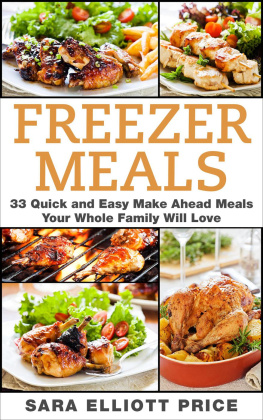
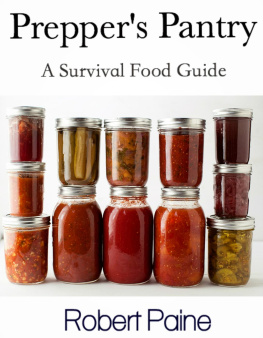
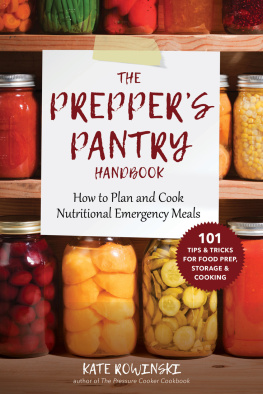
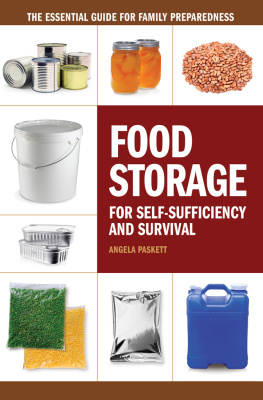
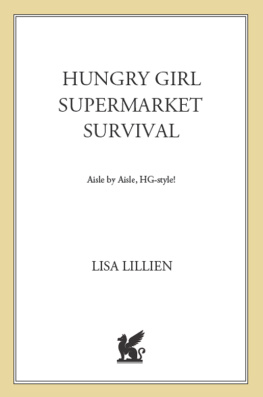
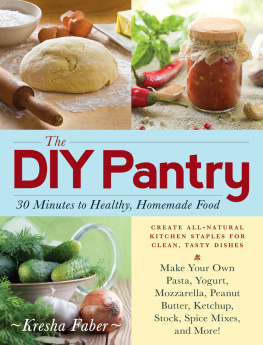
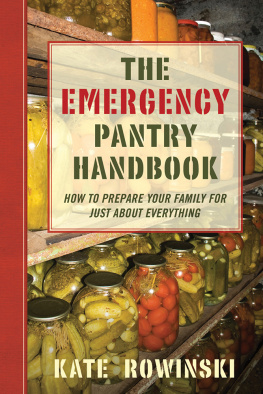
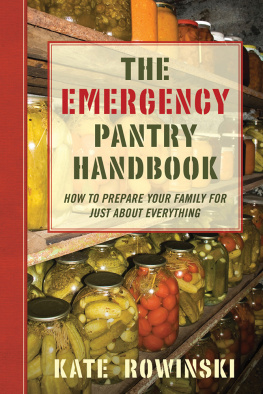
 Copyright 2016 by McGraw-Hill Education. All rights reserved. Except as permitted under the United States Copyright Act of 1976, no part of this publication may be reproduced or distributed in any form or by any means, or stored in a database or retrieval system, without the prior written permission of the publisher. ISBN: 978-0-07-184140-5
Copyright 2016 by McGraw-Hill Education. All rights reserved. Except as permitted under the United States Copyright Act of 1976, no part of this publication may be reproduced or distributed in any form or by any means, or stored in a database or retrieval system, without the prior written permission of the publisher. ISBN: 978-0-07-184140-5